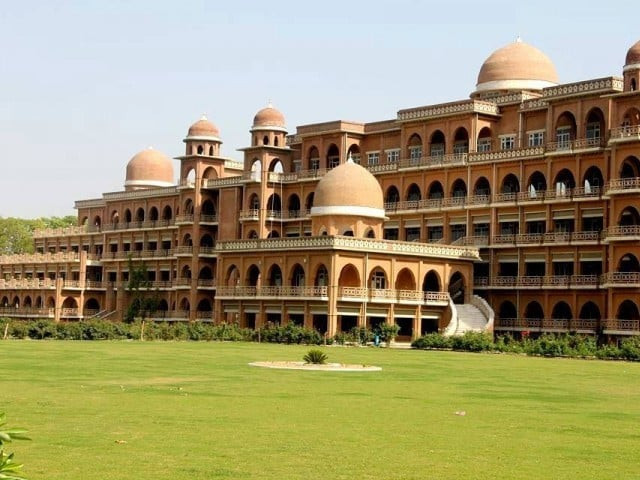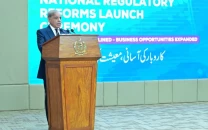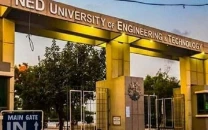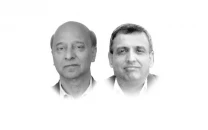Drop in postgraduate admissions hits UoP
Financial troubles have left the institution struggling to draw students to higher education programmes

The University of Peshawar, one of the oldest and most prestigious institutions in Khyber-Pakhtunkhwa, is grappling not only with deepening financial troubles but also with a sharp decline in student enrollment in its higher education programs, particularly the M. Phil and PhD disciplines.
According to official documents obtained by The Express Tribune, the number of students enrolling in postgraduate research programs has dropped significantly over the past five years. In 2020, 178 students were enrolled in the PhD programs, however, by the academic year 2024-2025, this number had dwindled to just 66 PhD students. Similarly, the total number of postgraduate students, which was 4,708 in 2022, has decreased to 4,081 in 2025.
The decline appears to be part of a troubling trend. Data shows that in 2021-2022, 661 students enrolled in M. Phil and 208 in PhD programs. The following year saw a rise, with 800 M. Phil and 223 PhD students. However, the numbers began to fall again in 2023-2024, with 714 M. Phil and 172 PhD students, before plummeting in the current academic year.
The university documents further revealed that several departments failed to attract a single PhD candidate over the last five years. These include key disciplines such as computer science, data science, fashion designing, interior designing, software engineering, and Artificial Intelligence (AI). Alarmingly, only one student has enrolled in the PhD program for Computer Science since 2020.
Equally concerning is the lack of interest in foundational social science disciplines. Departments like political science, psychology, regional studies, and Urdu saw no new admissions in recent years. The absence of enrollment in such core subjects reflects a growing disillusionment among students, raising concerns about the university's academic environment.
Tufail Khan, a prospective M. Phil student who was unable to secure enrollment, blamed the academic staff for neglecting their responsibilities. "Teachers don't take interest in classes. Many of them are preoccupied with foreign students because they receive stipends from international programs. The Higher Education Commission (HEC) must establish guidelines requiring faculty to actively supervise postgraduate students and ensure annual PhD completions. However, no one here holds the teachers accountable," he noted.
Khan further alleged that many faculty members were distracted by part-time jobs, social media, and foreign-funded projects, leaving little time for teaching or student mentorship. This, he claimed, is one of the major reasons behind the growing academic disconnect on campus.
Speaking on the issue, Dr Danish Baber, a researcher and head of the creative wing at the Directorate of Information and PR, pointed to soaring tuition fees as a major barrier. "Students do enroll, but most cannot afford to continue their education. Persistent government budget cuts have forced public universities to raise fees annually in order to survive. Until the government increases funding for higher education, the decline in research and postgraduate study will continue," he warned.
Dr Muhammad Uzair Khan, former president of the Peshawar University Teachers Association, painted an even grimmer picture. "UoP has struggled to pay salaries to its staff in recent months due to severe budget shortfalls. Financial constraints are crippling the institution. We can't even pay our employees on time. Moreover, the growing number of sub-campuses across the province is another contributing factor since many students now prefer to study at institutions closer to home, reducing the appeal of the main campus in Peshawar," said Dr Khan.
Despite these challenges, Dr Khan emphasized the urgent need for the government to allocate special grants to save the university from further decline. "If immediate steps are not taken to promote higher education and invest in research, the situation will deteriorate beyond repair," he cautioned.
Conversely, an official from UoP, speaking on the condition of anonymity, acknowledged that the proliferation of universities across districts, combined with high tuition fees and institutional neglect, might be pushing students away from the main campus.



















COMMENTS
Comments are moderated and generally will be posted if they are on-topic and not abusive.
For more information, please see our Comments FAQ